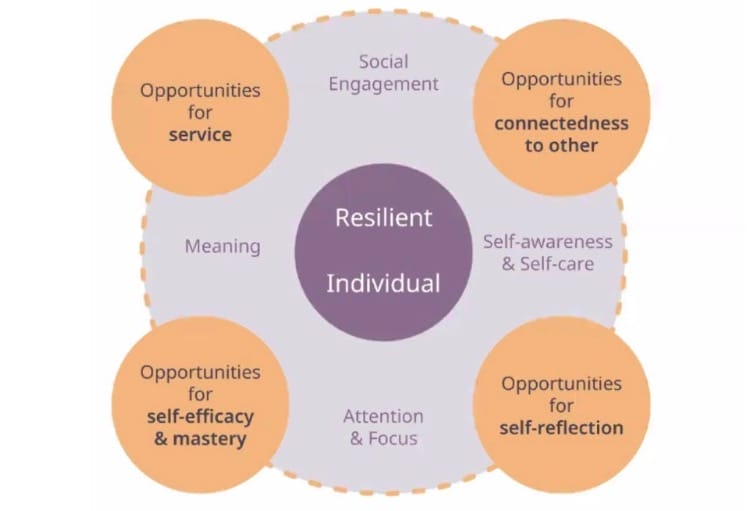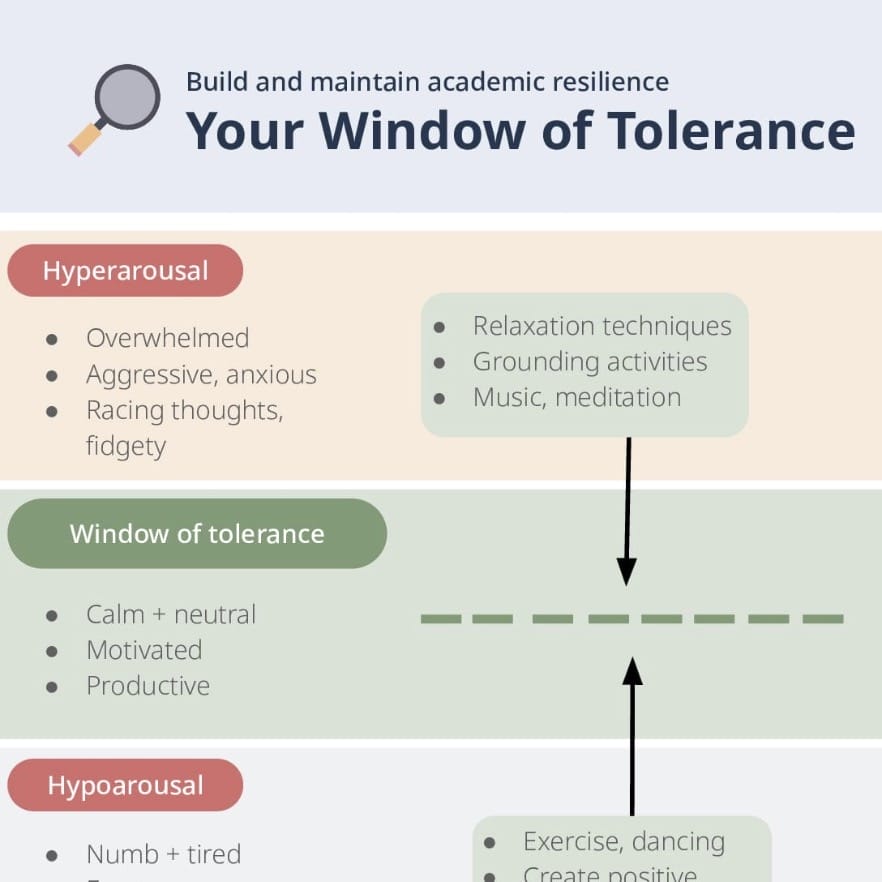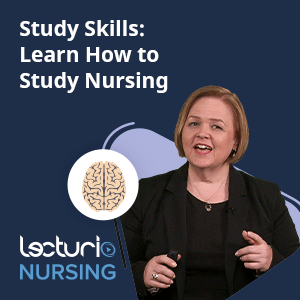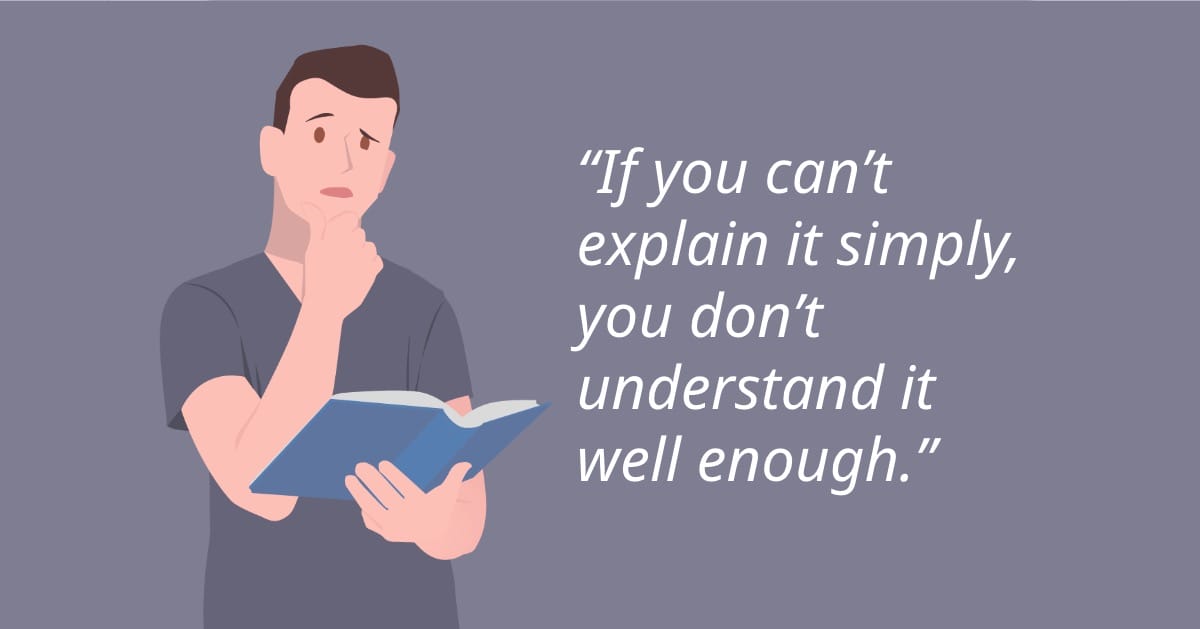What is resilience?
Resilience refers to the ability to cope with negative experiences. In the context of studying, this would mean being able to bounce back from the challenges, obstacles and setbacks that come with a rigorous study environment.
Being academically resilient refers to the ability of a student to effectively cope with setbacks, challenges, stressors, and pressures that are encountered in the educational environment. This concept involves several key aspects:
Persistence and determination
Academic resilience is characterized by the ability to persist through difficulties and obstacles in the learning process. When you are resilient, you demonstrate determination and a commitment to learning despite encountering academic failures or setbacks. Resilience makes you able to bounce back from disappointments and maintain motivation over time.
Adaptability
Being adaptable means you can adjust your learning strategies and approaches in response to new challenges or feedback. This flexibility allows you to manage your learning more effectively and find new ways to succeed when traditional methods fail or when faced with unfamiliar situations.
Emotional regulation
Academic resilience involves managing emotions effectively and being able to regulate stress, anxiety, and frustration that often arise from academic challenges. It helps you stay focused and composed under pressure, which is crucial for high-stakes environments like exams or competitive academic settings.
Problem-solving skills
Being academically resilient includes having strong problem-solving skills. This helps you identify problems, analyze underlying factors, and develop practical solutions. If your resilience and problem-solving skills are well developed, you will approach challenges with a proactive mindset, seeking out resources or assistance when needed.
Support utilization
Academically resilient students recognize the importance of seeking and utilizing support. They are not afraid to ask for help from peers, mentors, or educators. They actively engage with their support networks to enhance their learning and cope with academic pressures.
Last but not least: self-efficacy
Finally, academic resilience is closely tied to self-efficacy, which is the belief in one’s own ability to succeed in specific situations. People with high self-efficacy have confidence in their capabilities, which drives their persistence, influences their academic behaviors, and impacts their overall educational achievements.
In summary, academic resilience is not just about enduring through difficulties; it’s about thriving in the face of academic challenges. It encompasses a set of skills and attitudes that enable students to navigate the educational landscape effectively, optimizing both their learning experiences and their outcomes.
How to build academic resilience
The good news is: You aren’t either resilient or not resilient. If you notice stress is threatening to overwhelm you often, you can build up your resilience by consciously creating opportunities for yourself that foster your confidence and calm.
#1 Practice awareness and self-reflection
Resilience does not come from a single skill or factor, but is influenced by different areas and activities. One helpful habit to improve your resilience is to regularly self-reflect. What do you actually feel like you need more resilience against?
Know your stressors: Identify what often stresses you out or weighs on you most. Are there patterns? What coping strategies have worked for you in the past?

#2 Maintain social connection and mutual support
There’s few things scarier than feeling overwhelmed and, on top of that, all alone. Having social support is a big factor contributing to resilience, getting you through challenging times a little easier. Lean on friends, family, and mentors.
At the same time, try to find opportunities to support others. You can discuss coping strategies with your peers and support each other. Finding meaning and recognizing you’re not on your own is a great way to counteract anxiety and overwhelm.
#3 Master planning and self-care
No one walks into battle confidently without the sword. Feeling prepared to face what is thrown at you is the best way to not let it overwhelm you. Having a coping plan in place to actively and adaptively cope with future stressors and setbacks equips you with the confidence that you can handle the “worst case scenarios.” Make sure you reflect on unconscious strategies that you could leverage, and be specific about your coping plan: include concrete actions and resources you can use when you need them.
#4 Self-efficacy – the key to resilience
At the heart of academic resilience is self-efficacy—the belief in your own ability to succeed, that your successes are due to your own efforts (as opposed to luck or other circumstances).
This mindset is a big factor in making you more resilient to the ups and downs of your study journey, and you can actively develop this perspective in yourself:
- Set achievable goals: “You don’t need to jump on a mountain. Just take the first step.” – Break down your studies into manageable milestones to boost your self-confidence. Give yourself the chance to have small wins frequently!
- Celebrate small wins: Take a moment to acknowledge a success or a step you’ve made forward, no matter how small. It reinforces your confidence and motivates you to keep pushing.
- Reflect on what you’re doing and adjust: Practice reflecting on what study techniques you are using, how they are working for you, and adjust them based on your evaluations. Keep a bird’s eye view of your studies and tailor your study habits to bring you closer to your goals. This reminds you that your success is in your hands!
How to expand your “window of tolerance” for exam stress
What is the window of tolerance and why is it relevant?
First of all: It is okay that this is difficult! It doesn’t have to be comfortable.
Have your tools ready and deal with it as well as you can. But, you want to stay in a state of mind you can tolerate and “be ok in” while you tackle the challenges thrown at you. A helpful way of looking at this is the concept of the “window of tolerance”.
The “window of tolerance” is a term used in psychology to describe a state (or zone) where intense emotional arousal can be processed in a healthy way, allowing you to function and react to stress or anxiety without feeling overwhelmed. Within this window, you can function most effectively and respond to stress constructively.
Being outside that zone would be called being dysregulated, and this does set you up for a lot more struggles when being confronted with the high pressure of test situations.
Monitor and understand your emotional state
To make sure you are well-equipped to deal with stress and challenges your studies confront you with, it helps to learn to recognize your window of tolerance and when you move out of it by looking at how you feel and at what level, and why.
Only if you’re aware, can you take measures to become more stable when you need it.
Here are the typical signs of dysregulation:
- Anxiety, tension, racing thoughts, aggression, impulsivity, over-eating, or hyper-vigilance point to hyperarousal.
- Feeling disconnected/numb, memory loss, shame, depression, and fatigue point to hypoarousal.
Ways to monitor your emotional state can include keeping a diary, or just doing regular check-ins with yourself: How are you feeling? What behaviors are you noticing in yourself? Have you been feeling more tired than usual, or have your friends noticed you can’t sit still recently? Is there any particular stressor weighing on you currently?
If you identify that you might be in a state of dysregulation, you can take targeted measures to bring yourself back up or back down into your window of tolerance, out of hyperarousal or hypoarousal.
Techniques to stay within, and expand, your window of tolerance
Having a set of tools that allows you to feel prepared for the challenges you’re faced with can help you get less overwhelmed or dysregulated, because it gives you agency. All these challenges don’t just happen to you and are scary – they are tasks that you are prepared to tackle.

Out of the vast array of stress management techniques available, here are three to start with that specifically target your sense of agency and resilience:
- Mindfulness and meditation: Regular practice can significantly lower stress levels and help you remain centered.
- Scheduled breaks: Integrate short, regular breaks into your study sessions to prevent cognitive overload and maintain focus.
- Emotional regulation skills: Techniques such as deep breathing, progressive muscle relaxation, and visualization can help manage emotional responses.
Regularly practicing stress management techniques can help expand your window of tolerance, making you more resilient in stressful situations. This means that, over time, since you are “training your resilience muscle,” you will be able to cope well with greater and greater challenges that previously would have sent you into dysregulation.
So, don’t only turn to these measures when you are at your most stressed! Consistent practice of stress management techniques sets you up for success. If it is an option for you, counseling or therapy can be beneficial in providing strategies to deal effectively with stress and anxiety long-term, as well.

Take the Course: Nursing Study Skills
Reduce the stress in nursing school by mastering critical study skills and proven learning techniques with Prof. Rhonda Lawes!
Conclusion
Stress in healthcare studies can hardly be avoided, but it doesn’t have to be an insurmountable hurdle. By understanding its roots and how it affects you, and employing strategies to build resilience, you can significantly alleviate your stress.
By building academic resilience and learning to stay within your window of tolerance, you can face each challenge not just as a hurdle but as an opportunity for growth and learning.




